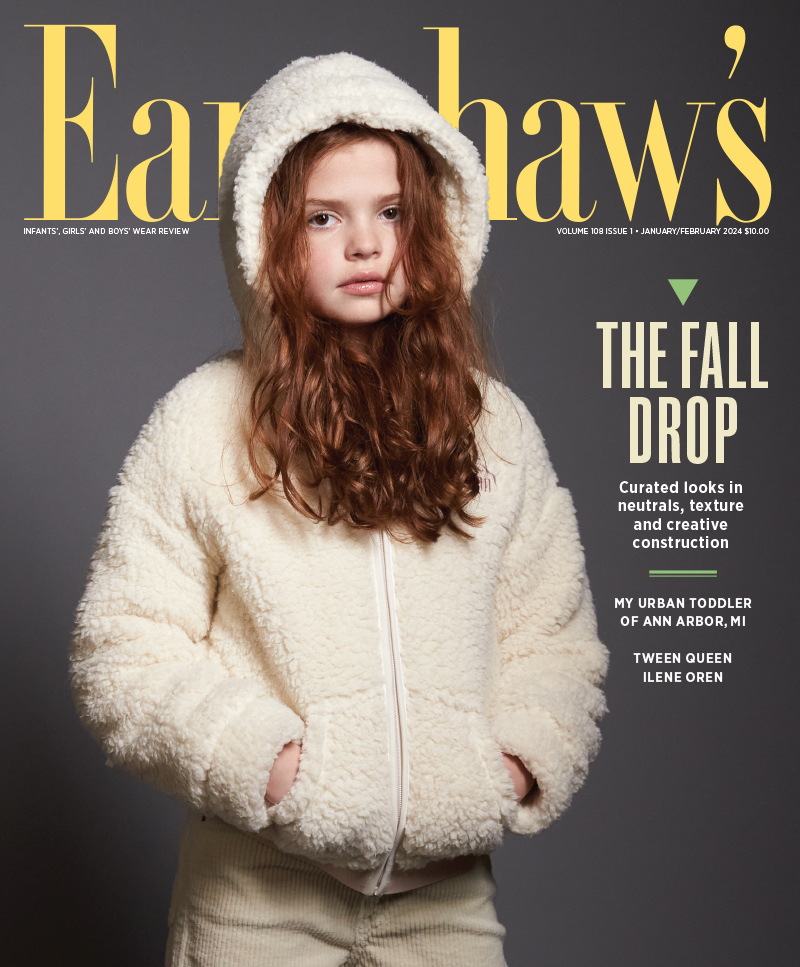 The past year has seen gallons of ink devoted to stories about the so-called Retail Apocalypse, a weekly tally of who’s downsizing, who’s dying and who’s disappearing. But it’s not all doom and gloom. Even in this dark age, there’s been retail rebirth—new formats, new partnerships, sales turnarounds and a few revivals.
The past year has seen gallons of ink devoted to stories about the so-called Retail Apocalypse, a weekly tally of who’s downsizing, who’s dying and who’s disappearing. But it’s not all doom and gloom. Even in this dark age, there’s been retail rebirth—new formats, new partnerships, sales turnarounds and a few revivals.
Take last month’s return of FAO Schwarz. Having gone the way of its former owner, Toys ‘R’ Us, three years earlier—a victim of sky-high Fifth Avenue rent and the Amazon shopping age—the destination store has relocated to more manageable digs just blocks away in Manhattan’s Rockefeller Center. The legendary store’s iconic clock tower, toy soldier guards (this time wearing uniforms designed by Gigi Hadid) and piano keyboard (made famous in the movie Big) are once again front and center. But this revival is much more than a replica. The new owners, ThreeSixty, have focused on experiential elements, like a two-story-tall rocket ship with nooks for little ones to play in, a station where you can build your own remote-control cars linked to a Paw Patrol adventure screen and a Melissa and Doug supermarket with shopping carts and bags. The store will also feature product demonstrators, magicians, costumed characters and dancers performing on that giant piano keyboard. In addition, the company plans to open pop-up FAO Schwarz stores during the holidays in England, Spain and Australia, as well as several permanent locations in Beijing and across the U.S. and Canada.
Also upping the ante on experiential shopping this year have been two cornerstone department store chains, Nordstrom and Macy’s. Rather than roll over, the retailers have gone back to the drawing board to entice, entertain and, above all, service the needs of customers in-store and online. Nordstrom’s new men’s flagship in midtown Manhattan, for example, made headlines this spring. At 47,000 square feet and three levels, the department store’s first location in New York is a shopping destination on steroids. Events, exclusives and entertainment are draws, as are online-esque services such as Express Returns kiosks located at each entrance, buy online and pickup in store, reserve online and try in store, and three-hour same-day delivery anywhere in Manhattan. At the other end of the retail spectrum and opposite coast, Nordstrom expanded its Local concept, introduced in the fall of 2017. At 3,000 square feet—much smaller than an average 140,000-square-foot Nordstrom store—the service-focused concept has no dedicated inventory. Instead, customers have access to personal stylists who can transfer merchandise in for them, as well as a suite of services like buy online and pickup in-store (available same-day), alterations, tailoring and manicures, to name a few. Service, speed and convenience are the guiding tenets of the Local concept.
Meanwhile, Macy’s acquired Story, a New York–based concept store, and appointed its founder, Rachel Shechtman, as the chain’s new “brand experience officer.” This was one of several signs that huge sales promotions are no longer its be all, end all approach. In fact, its North Star Strategy—aimed at improving the customer journey and reducing shopping friction points in stores and online—made strong headway this year. Facets of the plan include a redesigned loyalty program open to all customers; expansion of its off-price Backstage format within existing Macy’s stores as an added draw; an expanded merchandise assortment; the introduction of At Your Service stations in every store to make pickup of orders as seamless as possible; and the Growth50 initiative that looks to improve the shopping experience by focusing on five Ps: product, presentation, process, promotion and people.
If you build it, consumers will (more than likely) come. That’s been the approach behind the fast start of Everafter. The 2018 Earnie Award winner for Retailer of the Year (p. 8) was created last year by Intermix co-founder Haro Keledjian and his wife, former Intermix fashion director Sari Sloane. The dynamic duo has turned heads in the childrenswear retail arena with the opening of three more locations—two in the New York area and a branch in Burbank, CA—this year. The one-stop luxury boutique for kids and tweens has hit a sweet spot with its blend of personalized service, community outreach and in-store events topped by a curated selection of items from more than 200 brands, running from $5 to $500. In addition, the couple introduced a men’s and women’s lifestyle boutique, The Westside, designed in part to be a draw to its nearby Everafter locations. To be sure, the couple doesn’t do retail small. Expect more breakthrough ideas as well as more stores going forward.
So as another year enters the books for our industry—with the 102nd year of Earnshaw’s keeping tabs on it all—there’s plenty to be excited and encouraged about. Our roundup of this year’s Earnie Award winners, recognizing design and retail excellence across 24 categories, reaffirms the resilience, passion and creativity that drive us forward. Congrats to all the adapters, survivors and innovators. You make covering this industry fun.



Leave a Comment: